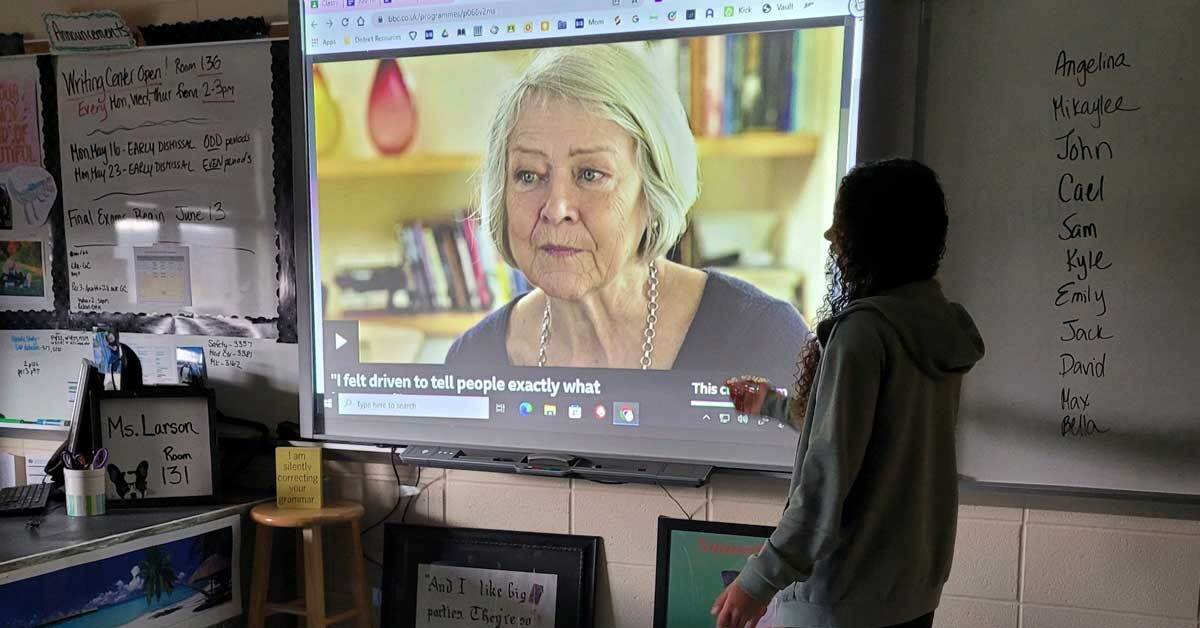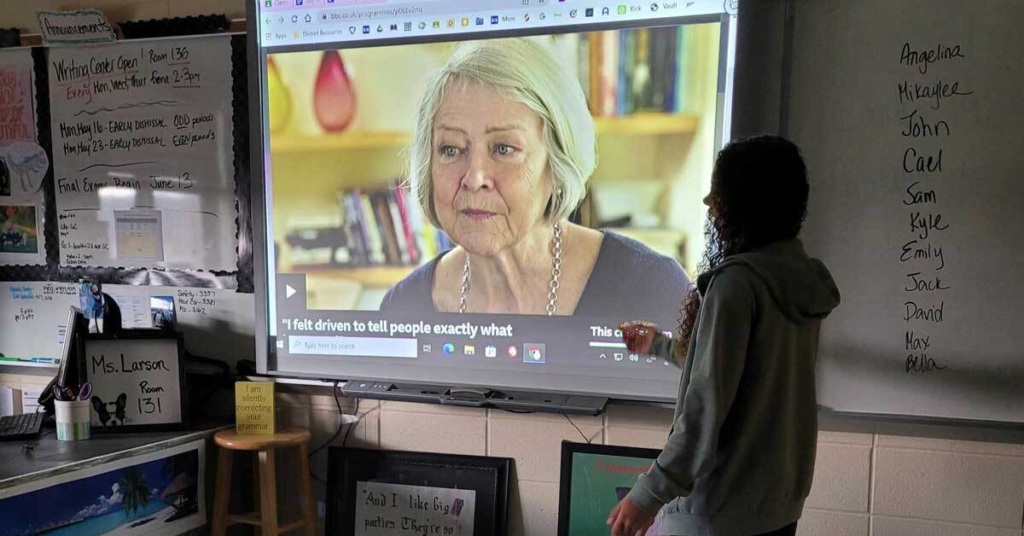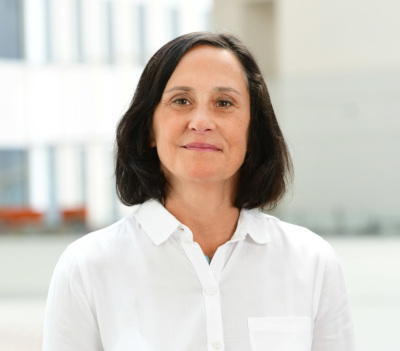
Educator instills appreciation for journalists who confront press freedom limits
For Kristin Larson’s journalism students, studying press freedom is more than an academic exercise. She acquaints them with journalists who have put themselves at risk to reveal important information that people in power would prefer to remain hidden.
Larson, an English teacher at South Windsor High School in South Windsor, Connecticut, uses NLP’s Checkology® virtual classroom lesson “Press Freedoms Around the World” as a foundation.
They also watch Palestinian photojournalist Eman Mohammed’s TED Talk, “The courage to tell a hidden story,” and analyze one of her images: a photograph of Palestinian photographer Faiz Moemen, who lost his legs during an airstrike. He sits in a chair holding a camera, while a wheelchair with a camera on the seat is next to him.
Exploring press freedom limits
With this unflinching introduction, Larson’s class of ninth to 12th graders begins to understand the courage needed to tell the truth when others might not want it to be told and the impact of such work.
“I want them to learn the risks of finding the hidden story and the risks of telling it,” Larson said.
Her students then choose a leading international journalist as their focus for a class presentation. They research the person’s education, experience and important work, and compile quotes and video clips.


A student in Kristin Larson’s journalism class gives a presentation about British journalist Katie Adie. The South Windsor, Connecticut, students were studying world press freedom. Photo by Kristin Larson
Larson ranks the presentations based on the degree of press freedoms in that journalist’s country, starting with the greatest freedoms and ending with the least. She bases her determinations on the Reporters Without Borders (RSF) annual World Press Freedom Index, which the students learn about in the Checkology lesson.
Last week’s presentations included journalists from Ireland and the United Kingdom, with greater freedoms, and Sudan, Saudi Arabia, China, North Korea, Venezuela and Russia, with lesser freedoms. The timing of the assignment is ideal. World Press Freedom Day is May 3.
Students use a section of the Checkology press freedoms lesson that describes the basis for a nation’s press rankings — whether journalists and news outlets have legal protections, who owns media companies, etc. They then answer questions based on what they learned from one another’s research.
And as a warmup, Larson asks her class where they think the United States ranks. “They all picked the U.S. as first in the rankings. They were really surprised” to learn it ranks in 44th place in the 2021 index.
Practicing journalists
By the end of the semester, her students gain life skills like critical thinking and a better understanding of how the world works and their place is in it. But they also practice those skills from the start.
Soon after class begins, they write for the school’s news site, The Bobcat Prowl (Larson is the adviser), or collaborate with the broadcast news class to develop a story for the school’s news channel, Bobcat News. The students also write for the yearbook. And she trains a few students as editors who help prepare their classmates’ work for publication.
Larson likes teaching this elective course because her students can pursue stories that interest them and have the room needed to reflect on what they learn. “They feel hope in our future because they know there are journalists searching to give the unbiased truth. It teaches them to read with an open mind, to spot bias,” she said.
And what they decide to cover is entirely up to them. “They can write whatever they want,” she said.
That means students sometimes turn their attention to events and issues beyond school grounds. For example, student Samantha Deras recently wrote about the role of women in Ukraine.
Larson began teaching journalism during the first months of the pandemic and discovered Checkology in late 2020, when she and the school’s library media specialist attended a virtual NewsLitCamp® — one of NLP’s professional learning events. “It was so good. They showed us Checkology, and since then we’ve been using it,” she said. “We were very inspired.”
Through her impactful, hands-on approach to teaching journalism, she’s inspired her students to understand press freedom on a deeper level as well.
